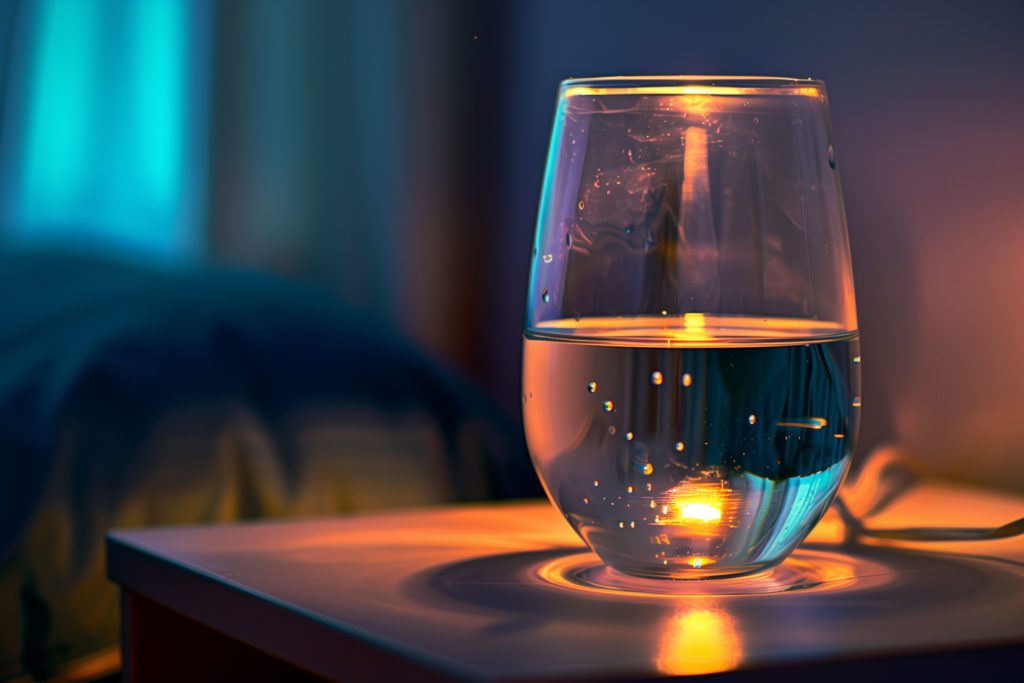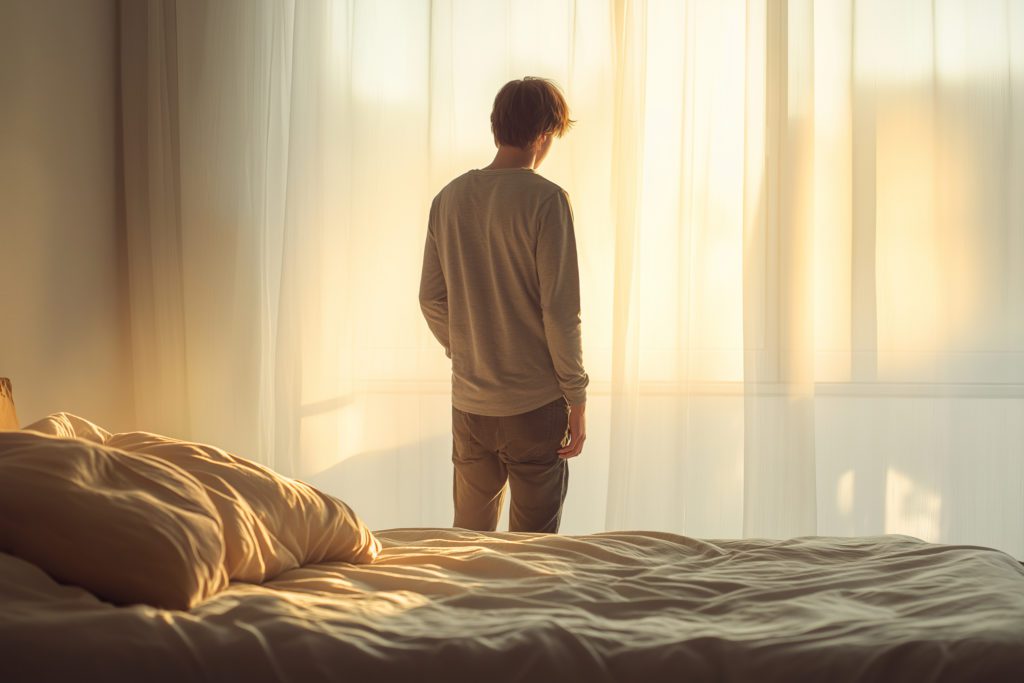
What Causes Nighttime Leg Cramps?
Plagued by nighttime leg cramps? Discover the medical conditions linked to this painful problem and find relief for a better night's sleep!

Discover the hidden medical issues behind nighttime leg cramps
Have you ever been jolted awake by a sudden, sharp pain in your leg? That's the harsh reality of nighttime leg cramps, a common yet mysterious ailment that can snatch you from the comfort of sleep without warning. But what causes nighttime leg cramps and does it signal an underlying condition? It’s a question that puzzles those who find themselves clutching their calves in the middle of the night.
These intense muscle contractions not only disrupt your slumber but also linger as throbbing reminders the next day, affecting everything from your mood to your productivity. Let’s explore the lurking issues that could be triggering these painful episodes, helping you and many others find much-needed relief.
What are nighttime leg cramps?
Nighttime leg cramps are those sudden, involuntary contractions of the muscles in your calf, thigh, or foot that strike when you're least expecting them—typically during the night when you're just trying to get some rest. Unlike the gradual stretch you might feel with a yawn in the morning, these cramps are sharp, intense, and can leave you wide awake from the discomfort.
Who's on the receiving end of these nocturnal interruptions? Really, it could be anyone, but they are more prevalent as we age. Older adults are particularly prone, though pregnant people and those with certain medical conditions might find themselves facing these episodes more frequently than others. Athletes and people who engage in strenuous physical activities are also common sufferers, especially if they’re not properly hydrating or balancing electrolytes.
Understanding these cramps is the first step towards managing them, which can seem daunting when you're rubbing a sore leg at 3 a.m. But by figuring out who they affect and how they present, we can start to unpack the bigger question of why they happen in the first place.
Medical conditions linked to nighttime leg cramps
Nighttime leg cramps aren't just painfully annoying, they often point to deeper health issues you might not even know you have. Let’s break down some of the medical conditions that could be causing these unwelcome nighttime interruptions.
Electrolyte imbalances
Ever wonder why athletes obsess over electrolytes? That’s because minerals like potassium, magnesium, and calcium are vital for smooth muscle operations. If these get knocked out of balance, thanks to things like dehydration, poor diet, or certain medications, your muscles might react by cramping up hard and fast.
Peripheral artery disease (PAD)
PAD tightens the arteries, reducing blood flow to your limbs. This condition isn’t just about aching legs after a walk but can also trigger cramps when you’re lying down, trying to relax. Imagine your muscles crying out because they’re literally starving for oxygen and nutrients.
Diabetes
Diabetes messes with your blood sugar levels, which can lead to nerve damage and circulation issues. These complications are prime triggers for nighttime leg cramps. Keeping your glucose levels stable is crucial not just for your overall health but also as a strategy to fend off these painful episodes.
Neurological conditions like Parkinson’s
Conditions like Parkinson's disease tweak the way your nerves communicate with your muscles, often leading to stiffness and spontaneous muscle contractions. It's like your body’s wiring gets a bit crossed, and suddenly, you're dealing with these intense muscle spasms.
According to Mayo Clinic, here are some more of the health issues linked to night leg cramps:
- Acute kidney failure
- Addison's disease (adrenal insufficiency)
- Alcohol use disorder
- Anemia, a condition in which the body doesn't get oxygen due to a lack of healthy red blood cells.
- Chronic kidney disease
- Cirrhosis (scarring of the liver)
- Dehydration (when the body doesn't have enough water and other fluids to work as it should)
- Dialysis
- High blood pressure (hypertension)
- Hyperthyroidism (overactive thyroid)
- Hypoglycemia
- Hypothyroidism (underactive thyroid)
- Lack of physical activity
- Medicines, such as those used to treat blood
- pressure problems and high cholesterol, and birth control pills
- Muscle fatigue
- Peripheral neuropathy
- Pregnancy
- Spinal stenosis
Each of these conditions offers clues to the puzzle of why nighttime leg cramps happen, paving the way for better, more focused treatments. By getting to the root of the problem, you can aim to dial down the frequency and intensity of these night-ruining cramps.
How nighttime leg cramps impact sleep
Nighttime leg cramps don’t just hurt; they royally mess with your sleep. Imagine you’re all cozy, slipping into dreamland, when—bam!—a cramp strikes. The pain snaps you awake, and even after it eases, you might find yourself tensing up, just waiting for the next one. That’s no way to get any rest.
This ongoing battle can leave you tossing and turning, dreading the next jolt of pain instead of catching those precious Zs. And let’s be real, the aftermath of a bad cramp isn’t just about physical pain—it can sour your mood and fog up your brain the next day. Plus, the anxiety about potentially facing another episode can make it even harder to relax and fall asleep again.
Apart from easing the pain, managing these cramps can help you break the cycle of dread and disruption so you can actually enjoy a full night's sleep. After all, everyone deserves to hit the pillow without fear of their own muscles turning against them in the middle of the night.
How to prevent nighttime leg cramps
Tired of being woken up by those painful leg cramps? A few simple changes might just make all the difference. From diet to daily routines, here’s how you can take control:
- Stay hydrated: Keep up with your water intake throughout the day to prevent dehydration, a common trigger for cramps.
- Optimize your diet: Incorporate foods high in potassium, magnesium, and calcium, like bananas, yogurt, and leafy greens, to support muscle health.
- Stretch before bed: Spend a few minutes on gentle stretches for your calves, thighs, and feet to reduce the risk of cramps.
- Keep active: Regular exercise like walking or cycling improves circulation and muscle tone, helping to prevent cramps.
- Use a sleep tracker: Monitor your sleep patterns with a tracking app or device to see how your lifestyle changes affect your sleep quality and cramp frequency.
If you've made these adjustments and still face frequent nighttime cramps, consult a healthcare professional to check whether you’re affected by the conditions we covered above. Persistent cramps can signal deeper health issues that require more than just home remedies.
Getting a leg up on nighttime cramps
Don't let leg cramps steal your sleep. Understanding and addressing the underlying medical reasons is key to preventing those nightly interruptions. If you've tried all the tricks and still find yourself facing down the midnight muscle mutiny, it might be time to call in the pros. Consulting a healthcare provider can unlock the solutions to ensure your nights are restful and your days are bright.

Written by
Georgia Austin
Professionally trained copywriter, editor, and content marketing strategist with over 7 years of experience—working with brands like Nike, Siemens, Toshiba, Tommy Hilfiger, Culture Trip, and Klook.
Download Pillow
Get help
Press & News
Legal
Connect
X (Twitter)
Company
Copyright © Neybox Digital Ltd.



